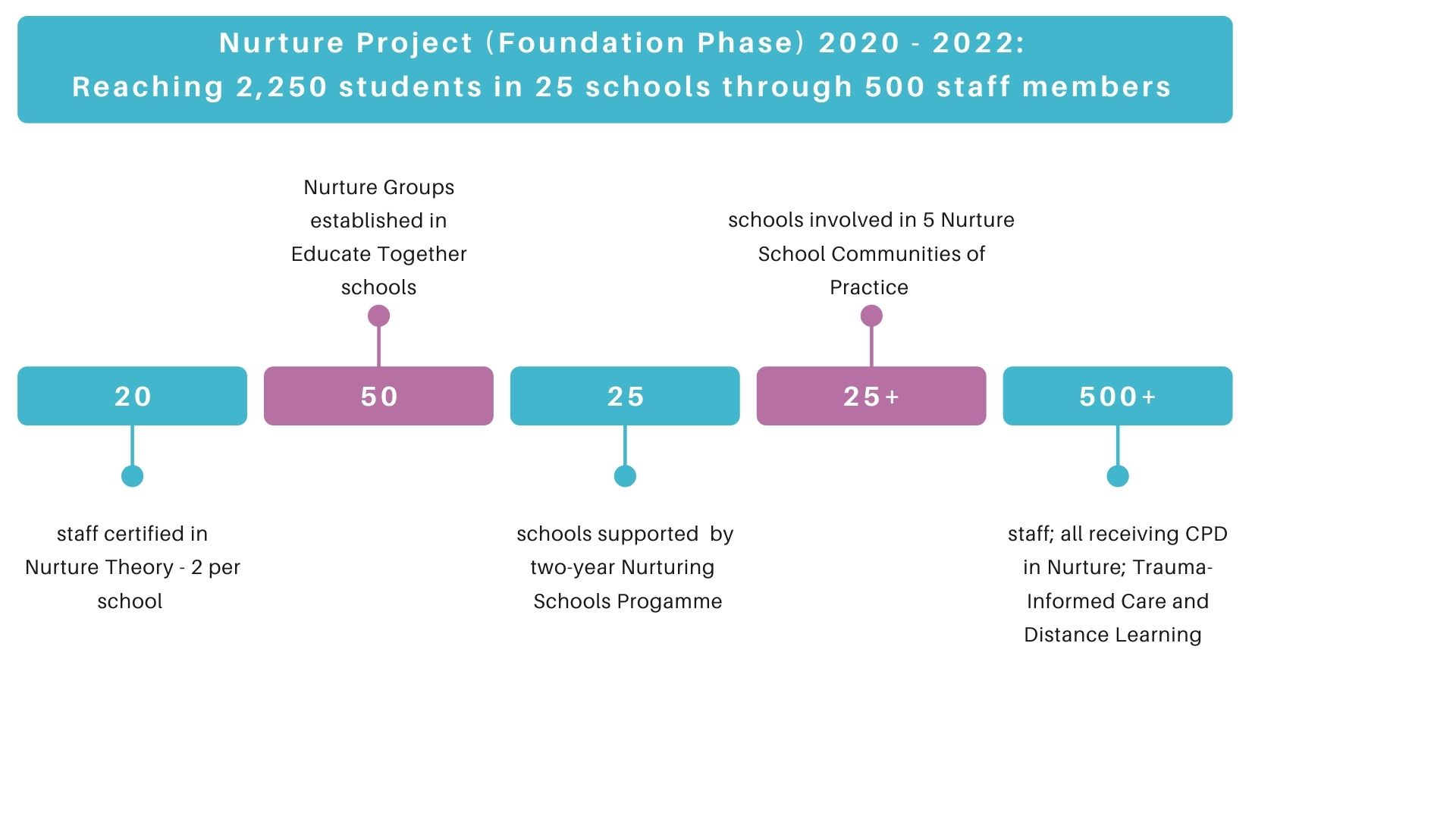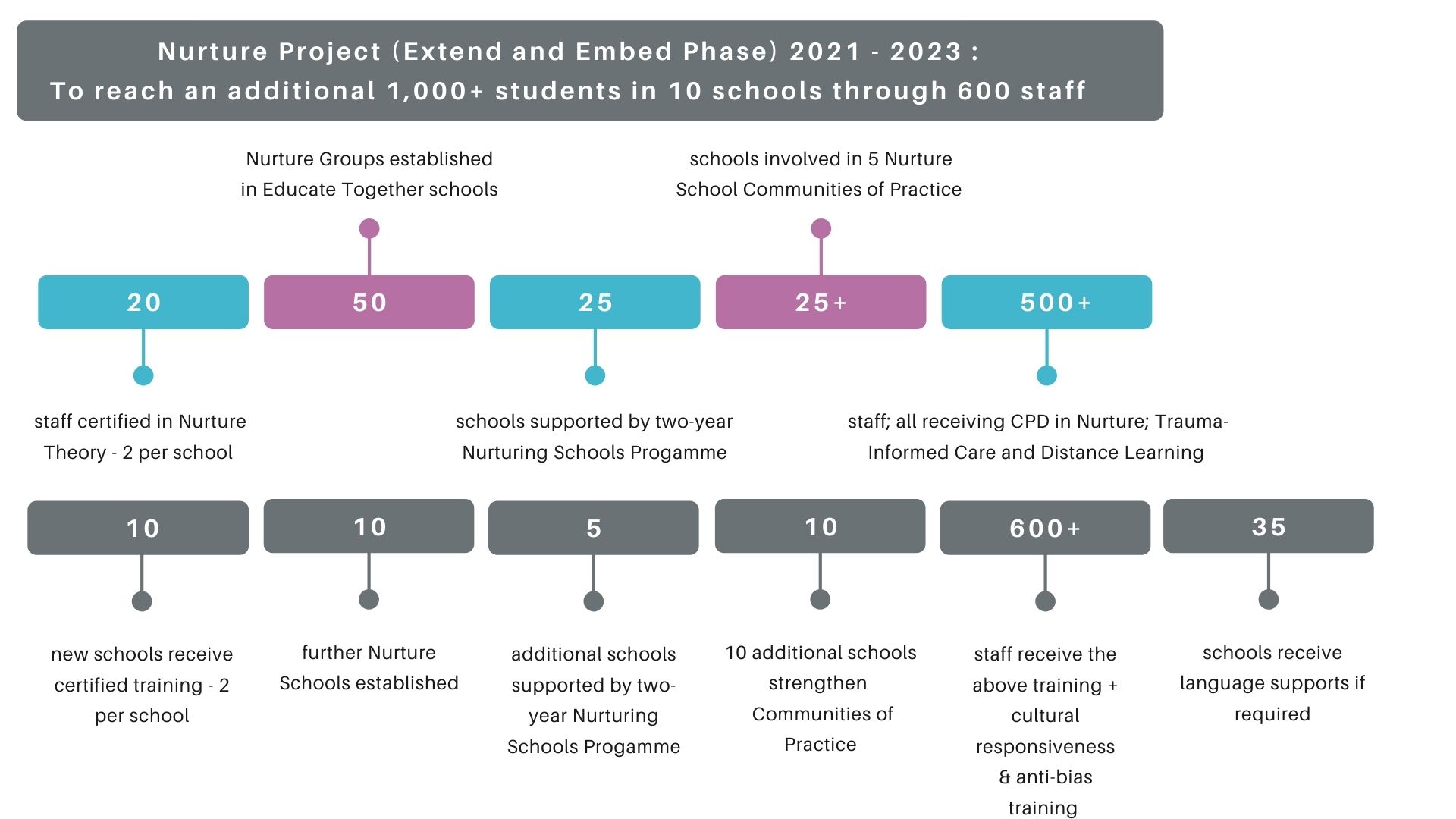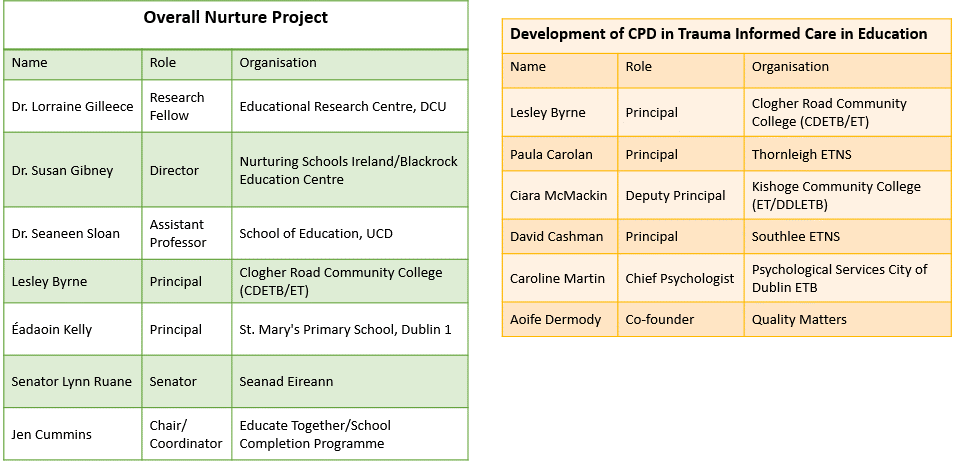Our Nurture Schools Project works with students with social, emotional and behavioural difficulties in primary and second-level schools to engage them with their education.
The project implements a innovative approach to addressing educational disadvantage, through a focus on the social-behavioural needs of the students, balanced with a recognition that teachers often hold the keys to unlocking educational potential and outcomes for students.
The Concept of Nurture
The concept of nurture in education recognises that students’ wellbeing is as important as their academic achievements.
Through the nurture approach schools address the social, emotional and learning needs of individual students and remove barriers to learning. There is a strong emphasis on emotional literacy, language development, relationships and communication.
Participating teachers make use of the Boxall profile tool throughout the programme, which is a detailed assessment of social, emotional and behavioural functioning of children and young people.
When the barriers to learning have been addressed and children feel connected to school life, then engagement in learning follows.
The Power of Nurture
The outcomes of this transformation is evidenced by the story of 6th class student, Mary talking about her experience in Ennis Educate Together National School in the video below:
The positive impacts of the Nurture approach have been well documented by international research over the last two decades. They include improvements in academic attainment (including language and literacy skills), positive attachment to school leading to improved attendance, confidence, self-esteem, and behaviour and social skills. Some studies have suggested that gains in social and emotional functioning are maintained over time and positive changes at home have also been reported.
This project is the first in Ireland to address in a structured way the adoption of a Nurture approach across a network of schools, primary and second-level.
The project equips educators to better respond to the student in terms of identity (anti-bias and cultural responsiveness) and experiences (trauma-informed care); regardless of continued enforced school closures (distance and blended teaching).
It is designed to impact on whole-school culture and by creating a network of schools clustered in communities of practice, peer support, learning and cumulative outcomes data can be leveraged.
The Story So Far

The current project will reach 2,250 children in 50 groups in 25 schools over two years, providing Nurture and Trauma-informed Practice CPD to 500 teachers and qualifying 50+ teachers as certified nurture practitioners.
Impacts can be multiplied with additional funding by:
- extending the project to include 10 additional schools (2 additional clusters).
- continuing the project for a third year, reaching more students and embedding the Nurture approach in school cultures.
- enabling 1,000+ more students to be supported and 10 (one nurture group per school) additional nurture groups to be established.
- providing vital language supports to schools so that minority language children can be included.
- extending Nurture and Trauma-informed Practice training to a minimum of 100 or 100+ more teachers and certifying and additional 20 staff members as Nurture Practitioners.
- providing Anti-bias and Culturally Responsive Teaching training to (600+) teachers initially with capacity to extend to the wider Educate Together network.

Advising the Project

